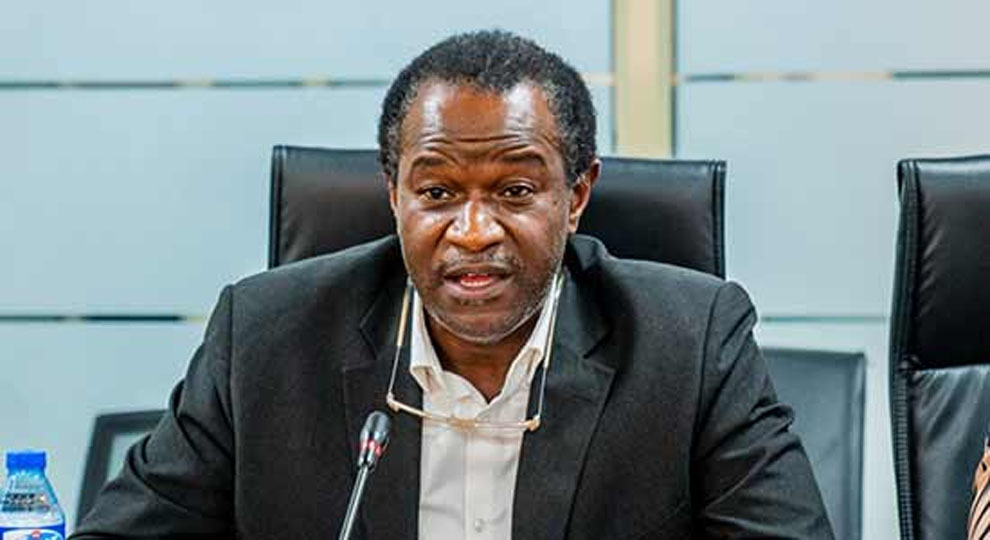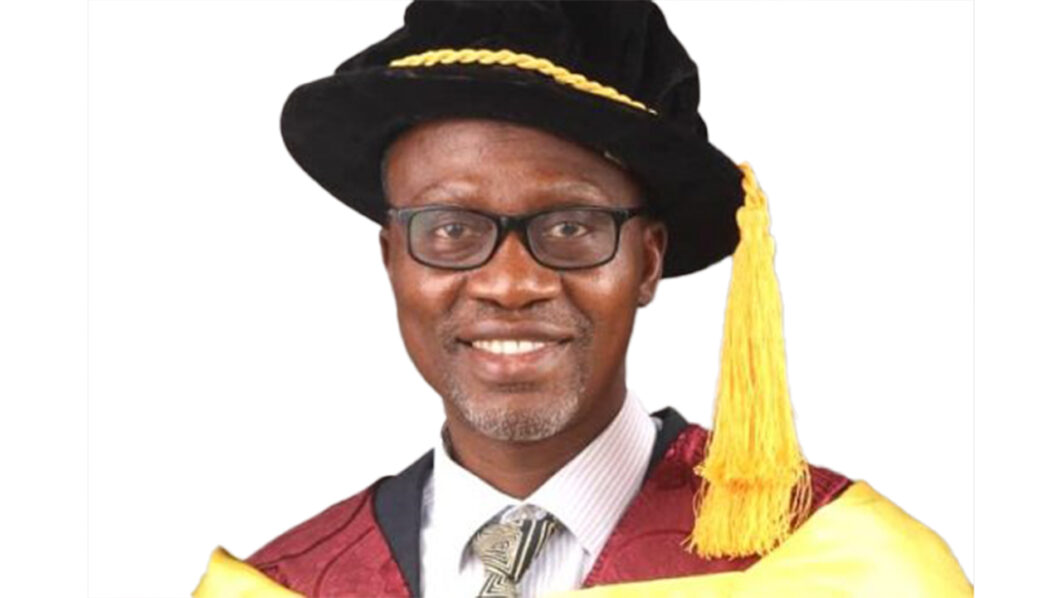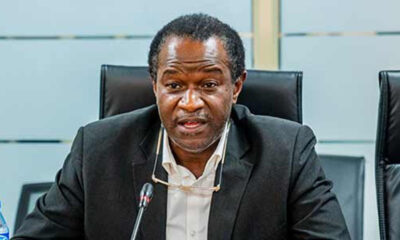Education
We disbursed N20,000 each to over 20,000 students in July – NELFUND

We disbursed N20,000 each to over 20,000 students in July – NELFUND
The Nigerian Education Loan Fund (NELFUND) has commenced the distribution of N20,000 monthly stipends to beneficiaries, with 20,371 students from six tertiary institutions successfully receiving their July payments.
This announcement was made in a statement signed by Mr. Ibom Uche, Director of Finance and Accounts at NELFUND, and shared on NELFUND’s official X (formerly Twitter) handle on Monday.
The stipends distribution follows NELFUND’s recent announcement of the ongoing disbursement of student loans, with a total allocation of N2.5 billion to various institutions nationwide.
“The Management of the Nigerian Education Loan Fund (NELFUND) under the leadership of Mr Akintunde Sawyerr, the Managing Director has announced the successful disbursement of N20,000.00 monthly stipends for the month of July to 20,371 students from six tertiary institutions,” the statement read in part.
The statement also noted that students who have begun receiving their July stipends are those whose institutional fees have already been covered by NELFUND. The six tertiary institutions where payments have started include Bayero University Kano, Federal University Dutsin-Ma, University of Ilorin, University of Benin, University of Ibadan, and University of Maiduguri.
Furthermore, NELFUND is actively working to initiate the payment process for students from approximately 55 more tertiary institutions, the statement noted. This process is expected to be completed within the next two weeks, as the fund is dedicated to ensuring that all eligible students receive their stipends promptly.
READ ALSO:
- Protest: Hoodlums break bank, burnt security vehicle in Kaduna
- Falana asks FG, states to account for N438bn COVID fund
- Bangladesh army announces interim govt after PM Hasina flees
The revised Student Loan Act 2024 stipulates the establishment of the Nigerian Education Loan Fund (NELFUND) to remove financial barriers and make education accessible to all Nigerian students, regardless of their economic background.
NELFUND is primarily funded by 1% of the revenues from taxes, levies, and duties collected by the Federal Inland Revenue Service, Nigerian Immigration Service, and Nigerian Customs Service. Additional funding comes from natural resource profits, education bonds, endowment funds, and donations.
The loans cover tuition, fees, and maintenance costs, with repayment starting two years after completing the National Youth Service Corps (NYSC) program.
On July 7, 2024, NELFUND announced the approval of 36 state-owned universities for student loan applications. This was followed by the approval of an additional 12 state-owned tertiary institutions on July 10.
On August 2, 2024, NELFUND announced the disbursement of N2.5 billion in student loans to benefit 22,120 eligible students across various institutions. Additionally, N442 million has been allocated for students’ upkeep funds for July.
In his speech on July 4, President Bola Tinubu announced the release of N50 billion to NELFUND from proceeds recovered by the Economic and Financial Crimes Commission (EFCC).
We disbursed N20,000 each to over 20,000 students in July – NELFUND
Education
Canadian province opens 2025 government internship programs for international students

Canadian province opens 2025 government internship programs for international students
The Government of Prince Edward Island (PEI), a Canadian province, is inviting applications for its 2025 Internship Program.
This opportunity allows international students and recent graduates to gain experience working within the provincial government.
The internship program, which is a one-year temporary job assignment, offers participants the chance to build skills and gain professional experience in various PEI government departments.
According to the Prince Edward Island, the program also provides access to workshops, networking events, and other professional development resources to help interns grow in their careers.
The PEI internship program is set to begin in May 2025 and runs for one year. Interns will have the opportunity to work in multiple government departments, participating in workshops and professional development activities. These include career planning, conflict management, emotional intelligence, and training on equity, diversity, and inclusion (EDI), as well as anti-racism in the workplace.
READ ALSO:
- Police kill three suspected kidnappers, arrest two others in Imo
- Lagos govt seals Coca-Cola, Guinness, Peak Milk
- Makinde speaks on Sharia court controversy in Oyo
Additionally, the program provides a platform for;
- Networking,
- Helping interns to connect with government professionals and
- Build valuable relationships within the public service sector.
- Interns will also receive support to help them understand eligibility for government jobs and navigate potential future opportunities in the public service.
Eligibility and application requirements
To be eligible for the program, applicants must have completed a;
Post-secondary program within the past 36 months. Additionally,
- Candidates should be Canadian citizens, permanent residents, or eligible for a Canadian work permit.
- International students who meet these requirements are encouraged to apply.
Applications are currently being accepted, and interested candidates must submit their applications through the official PEI Internship Program Portal.
Interviews for shortlisted candidates will be held on March 4th and 5th, 2025. The internship program will begin in May 2025.
How to apply and important dates
Applicants can apply online through the official PEI Internship Program Portal.
Additional details, including position descriptions and participating departments, are available on the official website of the Government of PEI.
Canadian province opens 2025 government internship programs for international students
Education
Two ex-VCs, JAMB registrar to attend Prof. Ibraheem UNILAG inaugural lecture Wed

Two ex-VCs, JAMB registrar to attend Prof. Ibraheem UNILAG historic inaugural lecture Wed
- History beckons as Mass Comm alumnus delivers inaugural lecture Wed
History will be made this week Wednesday December 18, 2024 at University of Lagos when an alumnus of the university’s Mass Communication Department, Ismail Adegboyega Ibrahim, professor of journalism and communication studies, will deliver inaugural lecture as a lecturer of the department.
Ibraheem, a 1990 graduate of the university, returned to the institution in 2011 as a lecturer.
It is the first time a former student of the department will be delivering an inaugural lecture 58 years after its establishment.
Ibraheem, director of International Relations, Partnerships and Prospects at the UNILAG, will speak on “Casino Journalism and the End of History.”
The university’s Vice-Chancellor, Professor Folasade Ogunsola, will chair the event, according to a statement from the institution.
Two former vice-chancellors of the university, Professor Rahamon Bello and Professor Oluwatoyin Ogundipe, are expected to grace the lecture along with the Registrar of the Joint Admissions and Matriculation Board (JAMB), Professor Is-haq Oloyede, among others.
The lecture is scheduled for 4pm at the J.F. Ade. Ajayi Auditorium, UNILAG, Akoka.
Members of the University Community and general public are invited to join the lecture physically or virtually via Zoom Meeting ID:862 1255 2361.
Education
Austria offers scholarship grant for int’l postgraduate, research students

Austria offers scholarship grant for int’l postgraduate, research students
The Republic of Austria is offering an opportunity for international postgraduate students, PhD candidates, and postdoctoral researchers through the Ernst Mach Scholarship 2025.
Managed by OeAD-GmbH, Austria’s agency for education, this scholarship aims to support talented individuals in advancing their academic and research careers in Austria.
Details of the scholarship program
According to OeAD, the Ernst Mach Scholarship is open to students and researchers from various academic disciplines. This includes areas such as;
- Natural sciences
- Technical sciences
- Human medicine
- Health Sciences
- Agricultural sciences
- Social sciences
- Humanities, and arts.
The scholarship provides funding for semester or one-year grants, with research grants lasting from one to nine months, making it accessible to a broad range of applicants.
Benefits of the Ernst Mach scholarship
The scholarship offers numerous benefits to successful applicants.
- Recipients will receive a monthly stipend of €1,300 for the duration of their stay in Austria.
- Accommodation assistance is available, with affordable housing options ranging from €330 to €800 per month.
- OeAD will also provide administrative support to help applicants find suitable housing.
READ ALSO:
- Afe Babalola gets court order banning publication, sale of Dele Farotimi’s book
- Over 50 nuisance taxes will be scrapped — FG
- BREAKING: Blackout as National grid collapses again, 12th time in 2024
Grant holders will receive guidance on obtaining health insurance accepted in Austria, with a cost ranging from €55 to €200 per month. The scholarship also waives tuition fees at public universities, further reducing the financial burden on participants.
A travel subsidy of up to €1,200 is available for applicants from eligible developing countries, with travel invoices required for reimbursement. Moreover, recipients will have the opportunity to build valuable connections with top researchers and institutions in Austria, which can significantly enhance their academic and professional networks.
Eligibility criteria for applicants
The Ernst Mach Scholarship is open to early-career academics who are passionate about advancing their research. To be eligible, applicants must be;
- Postgraduate students pursuing a PhD outside Austria or postgraduates and postdoctoral researchers looking to conduct research in Austria.
- Additionally, postdocs employed at universities outside Austria are also eligible to apply.
- Applicants must be 35 years old or younger (born on or after October 1st, 1989) and should not have lived, studied, or worked in Austria for more than six months prior to applying.
- Proficiency in English or German is required to ensure effective communication during the research process.
How to apply for the Ernst Mach Scholarship
To apply for the Ernst Mach Scholarship 2025, interested individuals must visit the official OeAD-GmbH website.
The application deadline is February 1st, 2025. Applicants should ensure that they meet the eligibility requirements and submit all required documents before the deadline.
Austria offers scholarship grant for int’l postgraduate, research students
-

 Business3 days ago
Business3 days agoBe creative, monarch, others challenge Muslim professionals on economic revival
-

 Auto2 days ago
Auto2 days agoLSM MD extols founder’s qualities after latter posthumous industry award
-

 Entertainment2 days ago
Entertainment2 days agoMultiChoice announces free access to all DSTV channels for 3 days
-

 metro3 days ago
metro3 days agoJigawa State governor loses son 24 hours after mother’s death
-

 News2 days ago
News2 days agoNigeria Customs Service begins 2025 recruitment [How to apply]
-

 metro2 days ago
metro2 days agoHeavy security in Ilesa as ex-Osun deputy gov emerges new Owa-Obokun
-

 metro2 days ago
metro2 days agoLagos Imam to Tinubu: You haven’t disappointed us
-

 metro2 days ago
metro2 days agoDangote, Tinubu, Lookman named among 100 most influential Africans in 2024 (Full list)





